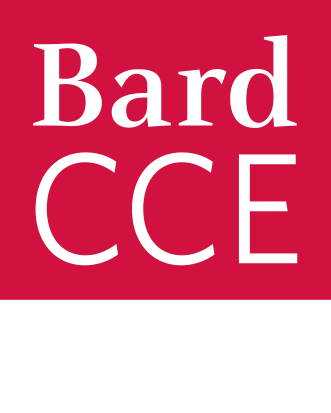Tango at Bard is about Creativity, Connection, and Art as Participation
Participants dancing at Queer Milonga, hosted by the Bard Tango Club
The Bard Tango Master Class and Queer Milonga offered participants something rare in academic settings–an invitation to connect without speaking, to learn by feeling, and to dance their way into deeper understandings of both themselves and society.
On April 18 - 19, the Campus Center transformed into a space full of rhythm, intimacy, and expression through the Tango Master Class & Queer Milonga, featuring internationally renowned dancers Martin Maldonado and Maurizio Ghella. The event was more than just a dance workshop, it was a celebration of connection, creativity, and queerness.
Hosted and funded by the student-run Bard Tango Club and the Engaged Liberal Arts & Sciences Initiative, the two-day event welcomed students, alumni, and community members into a dance environment grounded in improvisation and mutual respect. With workshops, lectures, and a late night milonga (Argentine tango social dance), participants experienced tango as an expressive language and social practice.
The event began Friday afternoon with two classes taught by Ghella and Maldonado, whose professional relationship spans decades. In their first workshop, dancers explored the transformative potential of pivoting, a central motion in tango, then examined how the physical frame can clarify communication and enable fluid movement in giros, the spiraling turns essential to tango. At one moment, Maldonado reminded students, “You don’t have to do anything to be original, just be.”
The event emphasized connection over choreography. “Most people think tango is about memorizing steps,” said Ghella, “but it’s really a conversation. You have to be completely present, to transmit and receive without words.” Ghella and Maldonado introduced a practica, an informal gathering where dancers could practice what they had learned, exchange feedback, and build community. Unlike the formal milonga, practicas are collaborative and spontaneous, both a practice session and a social performance.
At the end of the day, the Queer Milonga, a celebratory social dance, participants were allowed to choose their roles regardless of gender, breaking traditional norms of male leaders and female followers. Finally, the crowd watched a breathtaking performance by Ghella and Maldonado, applauding them for their technical brilliance as well as the emotional impact of their performance.
The language of these workshops – elasticity, balance and invitation – reflects the central theme of tango as a dialogue that is mutual, rather than one-sided. In one lecture, Ghella and Maldonado discussed their personal and professional journeys through a traditionally binary, heteronormative world of tango, and how they have managed to create spaces for alternative expressions of gender and connection in the dance. Their story emphasized that tango is not bound by roles but expanded by choice. “It’s about finding your own way to be,” said Maldonado. “We were told how we should dance, how we should act, but we chose to listen to ourselves instead.”
For many, the milonga wasn’t just a party; it was a liberation. “There’s a kind of connection you create with someone when you dance tango that’s unlike anything else,” said Alina, one of the club heads for the Argentine Tango Club. “Especially after the pandemic, having this physical, non-verbal way of listening to one another; it’s healing.”
Bard’s tango program was initiated by Professor Chungin Goodstein and the program began in 2010 with a single class and a hundred curious participants. “I didn’t want to teach tango just as dance steps,” said Goodstein. “For me, tango is an art form, improvised, intimate, and deeply human,” she added. The program evolved over the years thanks to persistent student advocacy. Students petitioned for the course to receive academic credit, and eventually succeeded.
Today, it exists as both an accredited course and a student club in addition to various community engagement initiatives. “Tango at Bard is about creativity, connection, and art as participation,” said Goodstein. “It’s not about performance for the stage, but about presence. Without human connection, tango doesn’t exist.”
This year’s master class series was preceded by an equally compelling lecture by Edgardo Fernandez Sesma, titled “Tango Is Not Just Dance.” Sesma, a dancer and activist, uses tango as a platform to confront social injustices from homophobia and transphobia. His work includes solidarity events, community care practices, and workshops for dancers of all abilities. “Tango can give voice to those who have been silenced,” said Sesma. In this way, the Queer Milonga and masterclass weekend can be seen not only as a celebration, but as part of a broader movement reclaiming tango as a space for inclusivity and transformation.
The Bard Tango Master Class and Queer Milonga offered participants something rare in academic settings–an invitation to connect without speaking, to learn by feeling, and to dance their way into deeper understandings of both themselves and society.
Post Date: 04-25-2025
